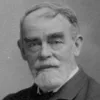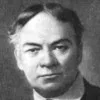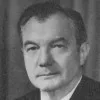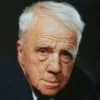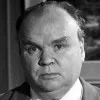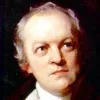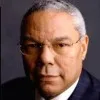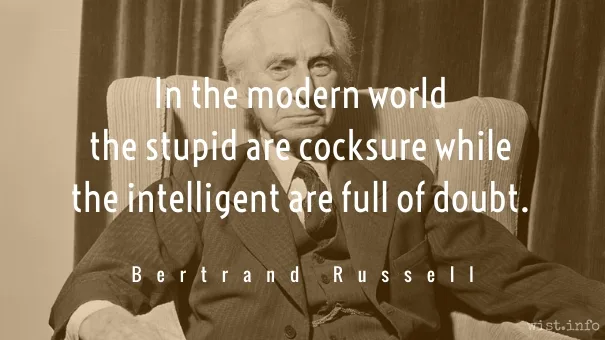Every man is not ambitious, or courteous, or passionate; but every man has pride enough in his composition to feel and resent the least slight and contempt. Remember, therefore, most carefully to conceal your contempt, however just, wherever you would not make an implacable enemy. Men are much more unwilling to have their weaknesses and their imperfections known, than their crimes; and if you hint to a man that you think him silly, ignorant, or even ill-bred, or awkward, he will hate you more and longer, than if you tell him plainly, that you think him a rogue.
Lord Chesterfield (1694-1773) English statesman, wit [Philip Dormer Stanhope]
Letter to his son, #161 (5 Sep 1748)
(Source)
Quotations about:
ego
Note not all quotations have been tagged, so Search may find additional quotes on this topic.
Do not let the wise boast in their wisdom; do not let the mighty boast in their might; do not let the wealthy boast in their wealth; but let those who boast boast in this, that they understand and know me, that I am the Lord; I act with steadfast love, justice, and righteousness in the earth, for in these things I delight, says the Lord.
The Bible (The Old Testament) (14th - 2nd C BC) Judeo-Christian sacred scripture [Tanakh, Hebrew Bible], incl. the Apocrypha (Deuterocanonicals)
Jeremiah 9:23-24 [NRSV (1989 ed.)]
(Source)
Alternate translations:Let not the wise man glory in his wisdom, neither let the mighty man glory in his might, let not the rich man glory in his riches: But let him that glorieth glory in this, that he understandeth and knoweth me, that I am the Lord which exercise lovingkindness, judgment, and righteousness, in the earth: for in these things I delight, saith the Lord.
[KJV (1611)]Let the sage boast no more of his wisdom, nor the valiant of his valour, nor the rich man of his riches! But if anyone wants to boast, let him boast of this: of understanding and knowing me. For I am Yahweh, I rule with kindness, justice and integrity on earth; yes, these are what please me -- it is Yahweh who speaks.
[JB (1966), 9:22-23]The wise should not boast of their wisdom,
nor the strong of their strength,
nor the rich of their wealth.
If any want to boast,
they should boast that they know and understand me,
because my love is constant,
and I do what is just and right.
These are the things that please me.
I, the Lord, have spoken.
[GNT (1976)]"Let the sage not boast of wisdom, nor the valiant of valour, nor the wealthy of riches! But let anyone who wants to boast, boast of this: of understanding and knowing me. For I am Yahweh, who acts with faithful love, justice, and uprightness on earth; yes, these are what please me," Yahweh declares.
[NJB (1985), 9:22-23]Let not the wise glory in their wisdom;
Let not the strong glory in their strength;
Let not the rich glory in their riches.
But only in this should one glory:
In being earnestly devoted to Me.
For I GOD act with kindness,
Justice, and equity in the world;
For in these I delight
-- declares GOD.
[RJPS (2023 ed.), 9:22-23]
In repenting ov sins, men are apt tew repent ov thoze they hain’t got, and overlook those they hav.
[In repenting of sins, men are apt to repent of those they haven’t got, and overlook those they have.]
Josh Billings (1818-1885) American humorist, aphorist [pseud. of Henry Wheeler Shaw]
Everybody’s Friend, Or; Josh Billing’s Encyclopedia and Proverbial Philosophy of Wit and Humor, ch. 155 “Affurisms: Ink Lings” (1874)
(Source)
He that swells in Prosperity will shrink in Adversity.
Thomas Fuller (1654-1734) English physician, preacher, aphorist, writer
Gnomologia: Adages and Proverbs (compiler), # 2321 (1732)
(Source)
One lesson you better learn if you want to be in politics is that you never go out on a golf course and beat the President.
Lyndon B. Johnson (1908-1973) American politician, educator, US President (1963-69)
Comment (1964) to Larry O’Brien III
(Source)
On the occasion of O'Brien beating Johnson by one stroke on a nine-hole golf outing. Noted by his father in his book, No Final Victories: A Life in Politics, ch. 8 "LBJ" (1974).
See Gracian.
All things […] are best to those who know no better.
Samuel Butler (1835-1902) English novelist, satirist, scholar
“Ignorance”
(Source)
Full passage:The less Judgment any Man ha's the Better he is perswaded of his owne abilities, because he is not capable of understanding anything beyond it, and all things how mean so ever, are best to those who know no better: for beside the naturall affection that he has for himself, which go's very farre, the less he is able to improve and mend his Judgment, the higher value he sets upon it, and can no more correct his own false opinions, when he is at his height, than outgrow his own Stature.
All is vanity and everybody’s vain. Women are terribly vain. So are men — more so, if possible.
Jerome K. Jerome (1859-1927) English writer, humorist [Jerome Klapka Jerome]
Idle Thoughts of an Idle Fellow, “On Vanity and Vanities” (1886)
(Source)
Now that I have grown old, I realize that for most of us it is not enough to have achieved personal success. One’s best friend must also have failed.
W. Somerset Maugham (1874-1965) English novelist and playwright [William Somerset Maugham]
Comment (1959)
A comment recorded by a journalist on his 85th birthday, quoted in Richard Cordell, Somerset Maugham: A Biographical and Critical Study (1961). Cordell mentions the influence of La Rochefoucauld on the phrase, and it is therefore often attributed to La Rochefoucauld, though it is not in his Maxims.
Also attributed to Gore Vidal, Iris Murdoch, Genghis Khan.
Pithier (and more common) paraphrases:More discussion of this quotation here: It Is Not Enough to Succeed; One’s Best Friend Must Fail – Quote Investigator®.
- "It is not enough to succeed; one’s best friend must fail."
- "It is not enough to succeed; one’s friends must fail."
- "It is not enough to succeed; others must fail."
- "It’s not enough that I should succeed, others should fail."
- "It is not sufficient that I succeed –- all others must fail."
After the satisfaction of doing what is right, the greatest is that of having what we do approved by those whose opinions deserve esteem.
Thomas Jefferson (1743-1826) American political philosopher, polymath, statesman, US President (1801-09)
Letter (1779-07-22) to William Phillips
(Source)
On your first appearance before the Court, do not waste your time and ours telling us so. We are likely to discover for ourselves that you are a novice but will think none the less of you for it. Every famous lawyer had his first day at our bar, and perhaps a sad one [….] Be respectful, of course, but also be self-respectful, and neither disparage yourself nor flatter the Justices. We think well enough of ourselves already.
Robert H. Jackson (1892-1954) US Supreme Court Justice (1941-54), lawyer, jurist, politician
“Advocacy Before the Supreme Court,” Morrison Lecture, California State Bar (23 Aug 1951)
(Source)
Reprinted in the Cornell Law Quarterly (Fall 1951). Legal citation "Advocacy Before the Supreme Court," 37 A.B.A.J. 801, 803 (1951).
On some positions, Cowardice asks the question, “Is it safe?” Expediency asks the question, “Is it is politic?” Vanity asks the question, “Is it is popular?” But Conscience asks the question, “Is it right?” There comes a time when one must take a position that is neither safe, nor politic, nor popular, but he must do it because Conscience tells him it is right.
Martin Luther King, Jr. (1929-1968) American clergyman, civil rights leader, social activist, preacher
Speech, Santa Rita, Calif., (14 Jan 1968)
Recording (at 10:22). King reused speech elements frequently. The same passage can be found in "Remaining Awake Through a Great Revolution", sermon at the National Cathedral, Washington, DC (31 Mar 1968).
For such is the nature of men that howsoever they may acknowledge many others to be more witty, or more eloquent or more learned, yet they will hardly believe there be many so wise as themselves; for they see their own wit at hand, and other men’s at a distance.
You may set it down as a truth which admits of few exceptions, that those who ask your opinion really want your praise, and will be contented with nothing less.
Even in common people, conceit has the virtue of making them cheerful; the man who thinks his wife, his baby, his house, his horse, his dog, and himself severally unequalled, is almost sure to be a good-humored person, though liable to be tedious at times.
Oliver Wendell Holmes, Sr. (1809-1894) American poet, essayist, scholar
Article (1857-11), “The Autocrat of the Breakfast-Table,” Atlantic Monthly
Collected in The Autocrat of the Breakfast-Table, ch. 1 (1858)
‘Tis an old maxim in the schools,
That flattery’s the food of fools;
Yet now and then your men of wit
Will condescend to take a bit.Jonathan Swift (1667-1745) English writer and churchman
“Cadenus and Vanessa,” l. 766ff (1713)
(Source)
The desire of the esteem of others is as real a want of nature as hunger — and the neglect and contempt of the world as severe a pain as the gout or stone.
John Adams (1735-1826) American lawyer, Founding Father, statesman, US President (1797-1801)
Essay (1790), “Discourses on Davila: A Series of Papers on Political History,” No. 4, Gazette of the United States
(Source)
Man will do many things to get himself loved, he will do all things to get himself envied.
Mark Twain (1835-1910) American writer [pseud. of Samuel Clemens]
Following the Equator, ch. 21, epigraph (1897)
(Source)
In my heart there may be doubt that I deserve the Nobel award over other men of letters whom I hold in respect and reverence — but there is no question of my pleasure and pride in having it for myself.
John Steinbeck (1902-1968) American writer
Speech (1962-12-10), Nobel Prize acceptance, Stockholm
(Source)
How many crimes committed merely because their authors could not endure being wrong?
Albert Camus (1913-1960) Algerian-French novelist, essayist, playwright
The Fall [La Chute] (1956) [tr. O’Brien]
(Source)
Many can bear Adversity but few Contempt.
Thomas Fuller (1654-1734) English physician, preacher, aphorist, writer
Gnomologia: Adages and Proverbs (compiler), # 3340 (1732)
(Source)
There are two classes [of scientists], those who want to know and do not care whether others think they know or not, and those who do not much care about knowing but care very greatly about being reputed as knowing.
Samuel Butler (1835-1902) English novelist, satirist, scholar
The Note-Books of Samuel Butler, “Scientists” (1912)Full text.
Then, do not have one mind, and one alone
that only your opinion can be right.
Whoever thinks that he alone is wise,
his eloquence, his mind, above the rest,
come the unfolding, shows his emptiness.[μή νυν ἓν ἦθος μοῦνον ἐν σαυτῷ φόρει,
ὡς φὴς σύ, κοὐδὲν ἄλλο, τοῦτ᾽ ὀρθῶς ἔχειν.
ὅστις γὰρ αὐτὸς ἢ φρονεῖν μόνος δοκεῖ,
ἢ γλῶσσαν, ἣν οὐκ ἄλλος, ἢ ψυχὴν ἔχειν,
οὗτοι διαπτυχθέντες ὤφθησαν κενοί.]Sophocles (496-406 BC) Greek tragic playwright
Antigone, l. 705ff [Haemon] (441 BC) [tr. Wyckoff]
(Source)
Original Greek. Alt. trans.:Then cleave not solely to this principle --
Thy words, no other man's, are free from error.
For whoso thinks that he alone is wise,
That his discourse and reason are unmatched,
He, when unwrapt, displays his emptiness.
[tr. Donaldson (1848)]Therefore, my father, cling not to one mood,
And deem not thou art right, all others wrong.
For whoso thinks that wisdom dwells with him,
That he alone can speak or think aright,
Such oracles are empty breath when tried.
[tr. Storr (1859)]Do not, then, bear one mood only in yourself: do not think that your word and no other, must be right. For if any man thinks that he alone is wise -- that in speech or in mind he has no peer -- such a soul, when laid open, is always found empty.
[tr. Jebb (1891)]Oh, do not, then, retain thy will
And still believe no sense but thine
Can judge aright; the man who proudly thinks
None but himself or eloquent or wise,
By time betrayed is branded for an idiot.
[tr. Werner (1892)]Wear not, then, one mood only in thyself; think not that thy word, and thine alone, must be right. For if any man thinks that he alone is wise, -- that in speech, or in mind, he hath no peer, -- such a soul, when laid open, is ever found empty.
[tr. Jebb (1917)]I beg you, do not be unchangeable:
Do not believe that you alone can be right.
The man who thinks that,
The man who maintains that only he has the power
To reason correctly, the gift to speak, to soul ––
A man like that, when you know him, turns out empty.
[tr. Fitts/Fitzgerald (1939), ll. 564 ff]Therefore I say,
Let not your first thought be your only thought.
Think if there cannot be some other way.
Surely, to think your own the only wisdom,
And yours the only word, the only will,
Betrays a shallow spirit, an empty heart.
[tr. Watling (1947), ll. 602 ff]And now, don't always cling to the same anger,
Don't keep saying that this, and nothing else, is right.
If a man believes that he along has a sound mind,
And no one else can speak or think as well as he does,
Then, when people study him, they'll find an empty book.
[tr. Woodruff (2001)]So, don’t be so single-minded. You said it yourself quite rightly: he who thinks that he’s the only one with a brain or a tongue or a soul, if you open him up you’ll find that he’s a hollow man.
[tr. Theodoridis (2004)]So don’t let your mind dwell on just one thought,
that what you say is right and nothing else.
A man who thinks that only he is wise,
that he can speak and think like no one else,
when such men are exposed, then all can see
their emptiness inside.
[tr. Johnston (2005), ll. 799 ff]Do not wear one and only one frame of mind in yourself,
that what you say, and nothing else, is right.
Whoever imagines that he and he alone has sense
or has a tongue or an essence that no other has,
these men, when unfolded, are seen to be empty.
[tr. Tyrell/Bennett]
There is none among them more essential or remarkable, than the passion for distinction. A desire to be observed, considered, esteemed, praised, beloved, and admired by his fellows, is one of the earliest, as well as keenest dispositions discovered in the heart of men. […] Wherever men, women, or children, are to be found, whether they be old or young — rich or poor — high or low — wise or foolish — ignorant or learned — every individual is seen to be strongly actuated by a desire to be seen, heard, talked of, approved and respected, by the people about him, and within his knowledge.
John Adams (1735-1826) American lawyer, Founding Father, statesman, US President (1797-1801)
Essay (1790), “Discourses on Davila: A Series of Papers on Political History,” No. 4, Gazette of the United States
(Source)
Men who are unhappy, like men who sleep badly, are always proud of the fact.
Bertrand Russell (1872-1970) English mathematician and philosopher
Conquest of Happiness, Part 1, ch. 1 “What Makes People Unhappy?” (1930)
(Source)
So it is no good our mounting on stilts, for even on stilts we have to walk with our own legs; and upon the most exalted throne in the world it is still our own bottom that we sit on.
[Si, avons nous beau monter sur des échasses, car sur des échasses encore faut-il marcher de nos jambes. Et au plus élevé trône du monde, si ne sommes assis que sur notre cul.]
Michel de Montaigne (1533-1592) French essayist
Essay (1587), “Of Experience [De l’Experience], Essays, Book 3, ch. 13 (3.13) (1595) [tr. Cohen (1958)]
(Source)
This essay first appeared in the 2nd (1588) edition, but this passage was added for the 1595 edition.
(Source (French)). Alternate translations:Wee may long enough get upon stilts, for, be we upon them, yet must we goe with our owne legges. And sit we upon the highest throne of the World, yet fit we upon our owne taile.
[tr. Florio (1603)]'Tis to much purpose to go upon Stilts, for when upon Stilts, we must yet walk upon our Legs: And when seated upon the most elevated Throne in the World, we are but seated upon our Breech.
[tr. Cotton (1686)]’Tis to much purpose to go upon stilts, for, when upon stilts, we must yet walk with our legs; and, when seated upon the most elevated throne in the world, we are but seated upon our breech.
[tr. Cotton/Hazlitt (1877)]Much good does it do us to mount on stilts, for on stilts we must still walk with our legs; and on the loftiest throne in the world we sit only on our buttocks.
[tr. Ives (1925)]So it is no use to mount upon stilts, for even on stilts we must walk with our own legs. And even on the most exalted throne in the world we are only sitting on our own bottom.
[tr. Zeitlin (1934)]Yet there is no use our mounting on stilts, for on stilts we must still walk on our own legs. And on the loftiest throne in the world we are still sitting only on our own rump.
[tr. Frame (1943)]A fine thing to get up on stilts, for even on stilts we must ever walk on our legs! And upon the highest throne in the world, we are seated, still, upon our arses.
[tr. Screech (1987)]No matter that we may mount on stilts, we still must walk on our own legs. And on the highest throne in the world, we still sit only on our own bottom.
[Bartlett's]
The strongest poison ever known
Came from Caesar’s laurel crown.William Blake (1757-1827) English poet, mystic, artist
“Auguries of Innocence,” l. 97 (1803)
(Source)
You probably wouldn’t worry about what people think of you if you could know how seldom they do.
Olin Miller (fl. early 20th C) American humorist
(Attributed)First quoted by Walter Winchell, "On Broadway" (7 Jan 1937)
Also frequently attributed to Mark Twain, Eleanor Roosevelt, and Ethel Barrett; the latter used it ("We would worry less about what others think of us, if we realized how seldom they do") in her 1968 book Don’t Look Now But Your Personality is Showing. See here for more information.
Variants:
- "You’ll worry less about what people think about you when you realize how seldom they do."
- "You wouldn’t worry about what people may think of you if you could know how seldom they do."
- "We wouldn’t worry so much about what folks think of us if we knew how seldom they do."
- "You wouldn’t worry so much about what people think of you, if you knew how seldom they do."
- "You wouldn’t worry so much about what other people think if you realized how seldom they do."
See also Johnson.
Many would be wise if they did not think themselves wise.
[Serían sabios algunos si no creyesen que lo son.]
Baltasar Gracián y Morales (1601-1658) Spanish Jesuit priest, writer, philosopher
The Art of Worldly Wisdom [Oráculo Manual y Arte de Prudencia], § 176 (1647) [tr. Jacobs (1892)]
(Source)
(Source (Spanish)). Alternate translations:Some would be wise, if they did not think themselves so.
[Flesher ed. (1685)]Some would be wise if they did not believe themselves wise.
[tr. Fischer (1937)]Some would be sages if they did not believe they were so already.
[tr. Maurer (1992)]
DAUPHIN: Self-love, my liege, is not so vile a sin
As self-neglecting.William Shakespeare (1564-1616) English dramatist and poet
Henry V, Act 2, sc. 4, l. 80ff (2.4.80-81) (1599)
(Source)
To know a man, observe how he wins his object, rather than how he loses it; for when we fail, our pride supports us; when we succeed, it betrays us.
Charles Caleb "C. C." Colton (1780-1832) English cleric, writer, aphorist
Lacon: Or, Many Things in Few Words, Vol. 1, § 265 (1820)
(Source)
CALVIN: People think it must be fun to be a super genius, but they don’t realize how hard it is to put up with all the idiots in the world.
It is amazing what you can accomplish if you do not care who gets the credit.
Harry S Truman (1884-1972) US President (1945-1953)
(Spurious)
There is nothing contemporary to Truman indicating this is a valid quotation of his. The earliest instance of crediting Truman seems to be by Hugh Sidey in Time (7 Nov 1988).
A variant of this quote was also attributed to Ronald Reagan, apparently due to a plaque he kept in his office:There is no limit to what a man can do or where he can go if he does not mind who gets the credit.
More discussion of the quote and its actual origins going back to 1863: A Man May Do an Immense Deal of Good, If He Does Not Care Who Gets the Credit – Quote Investigator. See also Montague.
Who has deceiv’d thee so oft as thy self?
Benjamin Franklin (1706-1790) American statesman, scientist, philosopher, aphorist
Poor Richard (1738 ed.)
(Source)
Everyone complains of his memory, but no one complains of his judgment.
[Tout le monde se plaint de sa mémoire, et personne ne se plaint de son jugement.]François VI, duc de La Rochefoucauld (1613-1680) French epigrammatist, memoirist, noble
Réflexions ou sentences et maximes morales [Reflections; or Sentences and Moral Maxims], ¶89 (1665-1678)
First appeared in the 2nd (1666) edition. The written manuscript adds "because everyone believes they have a lot of it."
(Source (French)). Alternate translations:Every body complains for want of Memory; but you never find any body complain of the Weakness of his Judgment.
[tr. Stanhope (1694), ¶90]Every one complains of the badness of his memory, but nobody of his judgment.
[pub. Donaldson (1783), ¶263; ed. Lepoittevin-Lacroix (1797), ¶86]Of the want of memory every one complains;, but nobody of the want of judgment.
[ed. Carvill (1835), ¶263]Every one complains of his memory, and no one complains of his judgment.
[ed. Gowens (1851), ¶92]Everyone blames his memory, no one blames his judgment.
[tr. Bund/Friswell (1871), ¶89]Everyone blames his memory, no one his judgment.
[tr. Heard (1917), ¶89]Everyone finds fault with his memory, but none with his judgement.
[tr. Stevens (1939), ¶89]Everyone complains of his memory, none of his judgment.
[tr. FitzGibbon (1957), ¶89]Everyone complains of his memory and no one complains of his judgment.
[tr. Kronenberger (1959), ¶89]Everybody complains of his memory, but nobody of his judgment.
[tr. Tancock (1959), ¶89]Everybody complains of his memory; but when did you ever hear anybody complain about his judgement?
[tr. Whichello (2016), ¶89]
A fanatic is a man who does what he thinks th’ Lord wud do if He knew th’ facts iv the case.
[A fanatic is a man who does what he thinks the Lord would do if He knew the facts of the case.]
Pride goeth before destruction, and an haughty spirit before a fall.
The Bible (The Old Testament) (14th - 2nd C BC) Judeo-Christian sacred scripture [Tanakh, Hebrew Bible], incl. the Apocrypha (Deuterocanonicals)
Proverbs 16:18 [KJV (1611)]
(Source)
Source of the common elided version, "Pride goeth before a fall."
Alternate translations:Pride goes before destruction, a haughty spirit before a fall.
[JB (1966), NJB (1985)]Pride leads to destruction, and arrogance to downfall.
[GNT (1976)]Pride comes before disaster,
and arrogance before a fall.
[CEB (2011)]Pride goes before destruction
and a haughty spirit before a fall.
[NRSV (2021 ed.)]Pride goes before ruin,
Arrogance, before failure.
[RJPS (2023 ed.)]
Those who never retract their opinions love themselves more than they love truth.
[Ceux qui ne se rétractent jamais s’aiment phis que la vérité.]
Joseph Joubert (1754-1824) French moralist, philosopher, essayist, poet
Pensées [Thoughts], ch. 11 “De la Vérité, de l’Illusion et de l’Erreur [Of Truth, Illusion, and Error],” ¶ 57 (1850 ed.) [tr. Attwell (1896), ¶ 161]
(Source)
(Source (French)). Alternate translations:They who never retract, love themselves more than truth.
[tr. Calvert (1866), ch. 10]Those who never retract love themselves better than truth.
[tr. Lyttelton (1899), ch. 10, ¶ 29]Men who never take back their words love themselves more than truth.
[tr. Collins (1928), ch. 10]Those who never back down love themselves more than they love the truth.
[tr. Auster (1983)], 1806]
One of the symptoms of approaching nervous break-down is the belief that one’s work is terribly important, and that to take a holiday would bring all kinds of disaster.
Bertrand Russell (1872-1970) English mathematician and philosopher
Conquest of Happiness, Part 1, ch. 5 “Fatigue” (1930)
(Source)
The vanity of being trusted with a secret is generally one of the chief motives to disclose it; for however absurd it may be thought to boast an honor by an act with shows that it was conferred without merit, yet most men seem rather inclined to confess the want of virtue than of importance, and more willingly show their influence, though at the expense of their probity, than glide through life with no other pleasure than the private consciousness of fidelity; which, while it is preserved, must be without praise, except from the single person who tries and knows it.
Samuel Johnson (1709-1784) English writer, lexicographer, critic
The Rambler, #13 (1 May 1750)
(Source)
Brute force plays a much larger part in the government of the world than it did before 1914, and what is especially alarming, force tends increasingly to fall into the hands of those who are enemies of civilization. The danger is profound and terrible; it cannot be waved aside with easy optimism. The fundamental cause of the trouble is that in the modern world the stupid are cocksure while the intelligent are full of doubt.
Bertrand Russell (1872-1970) English mathematician and philosopher
“The Triumph of Stupidity,” New York American (1933-05-10)
(Source)
Often paraphrased, "The trouble with the world is that the stupid are cocksure, and the intelligent are full of doubt." See also Yeats and Bukowski.
More examination of this quotation: The Best Lack All Conviction While the Worst Are Full of Passionate Intensity – Quote Investigator.







